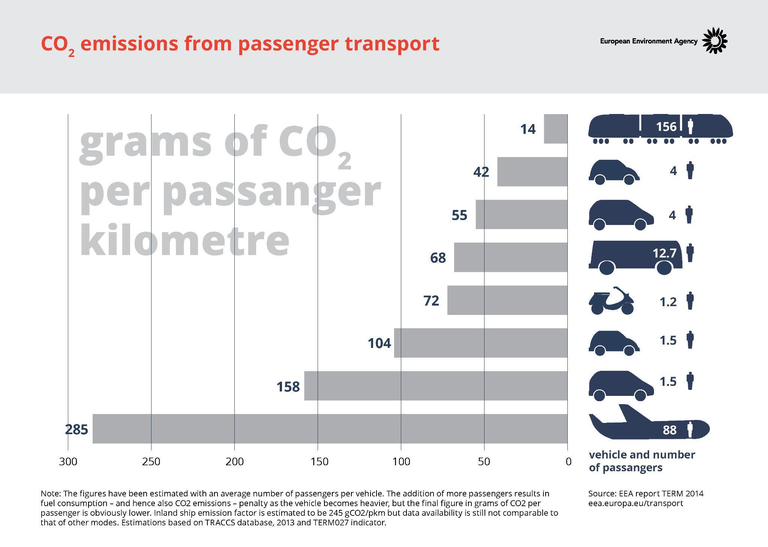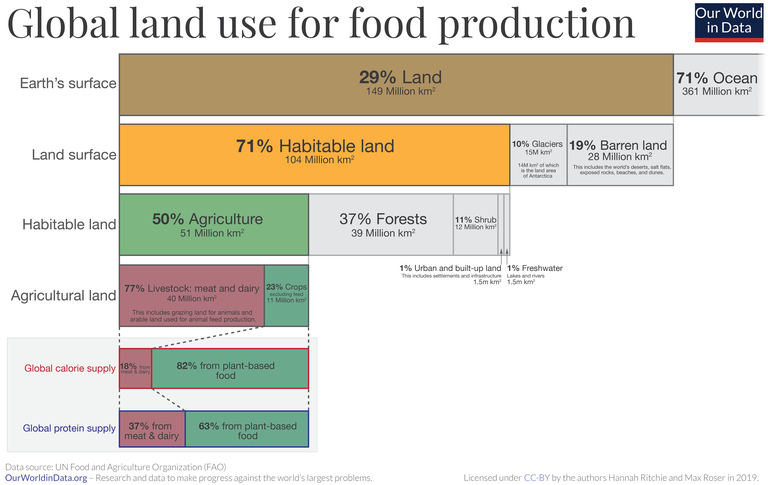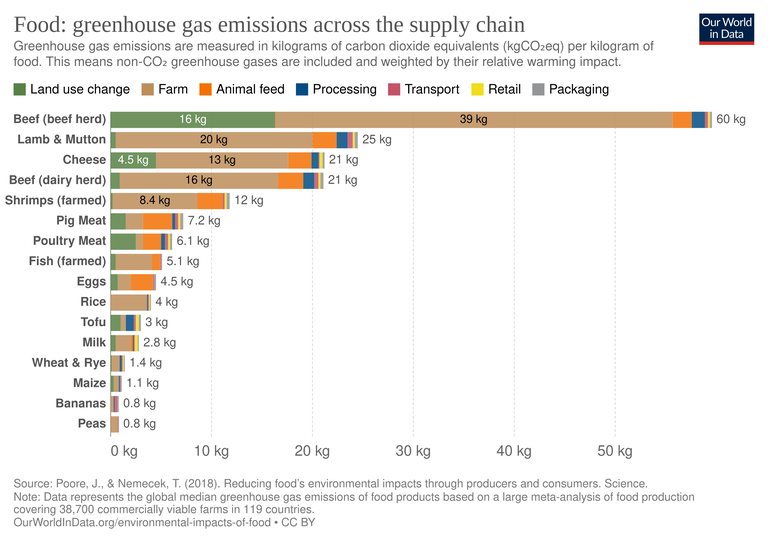Sustainability
PLANCKS becomes more sustainable! As the event is planned to be as ecologically compatible as possible, you are provided here with useful information about questions of sustainability. Read about how you can influence your environmental impact on your travel to Munich, during PLANCKS and on your way back home ...
Why is sustainability important? Why especially for PLANCKS?
Sustainability is defined as a way of acting while satisfying current needs without endangering our future abilities to do so as well. It comprises economic, social and ecological aspects and should be applied on various scales – intergenerational, interregional and across different walks of life. This is what many activists mean by their call for „Climate Justice“.
One of the most far-reaching and urgent problems caused by a lack of sustainibility is the current climate crisis. This term refers to the ongoing emission of greenhouse gases which alters the atmospheric composition leading to a radiation imbalance and hence planetary warming. This net warming has a strong impact on our ecosystems resulting in fundamental and most likely irreversible changes.
Therefore ecological sustainability in particular deserves our attention in all aspects of our society – including the activities of the jDPG and the PLANCKS Organisational Committee. Apart from PLANCKS representing one of our largest events, we also believe that scientists in particular should heed the warnings of their colleagues in the environmental sciences and be a role model for others. To minimize the environmental impact of PLANCKS we have decided to focus on the most relevant aspect: to reduce emissions where possible and compensate for them where it is not. In addition, we want to advocate for eco-friendly practices and sustainable alternatives during this year's PLANCKS. We want to invite you to take part in climate responsibility by offering you a range of informed choices. The following sections aim to give you an overview.
Travel
In 2018, travelling and traffic in general made up roughly a third of the total European greenhouse gas emissions. [1] This shows that mobility contributes massively to global emissions. And despite the fact that we are successfully reducing greenhouse gases in other parts of our life, the emissions caused by traffic have not decreased over the past decade [2] – even though the efficiency of our vehicles has increased! But so did our urge for more mobility and this trend is not compensated by the enhanced efficiency.
Figure 1 shows the CO2 emission of different means of transport. As you can see (and as you might have guessed), for long distances trains are the greenest choice.

But how do we calculate these numbers? The method is called Life Cycle Analysis. [4] In order to acquire meaningful values, you must not only take into account how much CO2 is emitted by e.g. a car during a ride, but also the emissions that are caused by the production of fuel and the car itself. Concerning electric vehicles, the proportion of renewable energy in the national electrical grid must be considered, too. This analysis is therefore quite complex, but such a holistic approach is essential for a reliable assessment of different means of transportation.
Regarding rail services, you might have heard of a horrifying number: The amount of electrified railways is quite low, e.g. in Germany only 61% of the entire rail network is electrified. [5] However, taking a look at the amount of people transported on electrified rail routes, you will find that this relates to 90% of all travelled kilometers [5] Here, the CO2 emissions can be regulated fairly easily by varying the amount of renewable energies in the national electricity mix (just as for electric cars).
If you wish to travel eco-friendly now, you can check out the different European train companies offering high speed rail lines or comfortable overnight connections. You might want to review if an Interrail Ticket is worth it for you. There is also an extensive remote bus network (including overnight journeys). We wish you a great and safe trip!
Diet
If you think of sustainability you might first think of waste, renewable energies and plastic. But what about our daily food, actually? Let's be scientific and have a look at some facts:
- Food production and distribution is responsible for around 26 % of worldwide greenhouse gas (GHG) emissions. [6]
- Agriculture occupies 50% of all habitable land on earth [7].
- About 86 % of endangered species are threatened by agriculture [7].
- 78 % of global water pollution is caused by agriculture [8].

This shows the significant impact of food production on sustainability. But what can we do about that? Surely, we have to eat something, but luckily, it matters what we eat:
- 77% of agricultural land is used for meat and dairy products.
- At the same time, meat and dairy products only supply 37% of our proteins and 18% of our calories.
- Plant based food requires 23% of the agricultural land to supply us with the remainder
- Transport and packaging makes only 11 % of food related GHG emissions.
- 1 kg of beef causes 20 times more GHG emissions than 1 kg tofu and more than 40 times more emissions than the same amount of wheat. This is mainly due to methane emissions of cows, emissions from fertilizers, manure and soil cultivation [8]

But aren't soy products as meat replacement bad for the rainforest due to fire clearing for farm land? In fact, 77 % of soy production ends as animal feed. [7] Meat production not only excerts a big ecological impact due to the livestock itself, but also due to the farming of their food. This is way more inefficient than eating the plant products directly. "On average, 10 g of vegetable protein are needed to generate 1 g of animal protein". [13]
For those reasons, the Intergovernmental Panel on Climate Change (IPCC) suggests to invest in a more plant based diet [10]. This is the key actually: reducing the amount of meat and dairy products will substantially improve your ecological footprint. More than buying local or organic food. And the good thing is: there is no need to for new technology or big investments - you can start today.
This is why our PLANCKS event will give you the choice to try out a nutritious, healthy and delicious plant-based diet to do our planet and our future a little favour.
Our Plans
As mentioned above, we want to reduce our GHG-emissions wherever possible. We know however that a lot of emissions are unavoidable. Many of you have to travel such long distances, that a train or bus is no viable alternative. For that reason we have decided to offset all emissions, including the travel of our participants by financing a climate protection project via a compensation partner. This is made possible by the generous financial support of the Wilhelm and Else Heraeus Foundation. We will carefully select the PLANCKS merchandise, using official labels for environmental and social standards as decision guidelines. For Friday lunch there will be a completely vegetarian meal for all and of course the entire event will always have vegan diet options. The PLANCKS program for participants is supplied to everyone as a digital version and only printed on demand. And last but not least, we will do our best to raise awareness for the topic and motivate our participants to help us turn PLANCKS into an sustainable event. To that end we have also sneaked some environmental panels into our PLANCKS Bingo. Have a look and see what you can already check off:
Sources
[1] https://ec.europa.eu/eurostat/statistics-explained/index.php?title=File:Final_energy_consumption_by_sector,_EU-27,_2018_(%25_of_total,_based_on_tonnes_of_oil_equivalent).png
[2] from lecture cycle "Nachhaltigkeit in Mobilitätssytemen" (Sustainability in mobility systems), Martin Kagerbauer, winter semester 2020/2021, Karlsruhe Institute of Technology
[3] https://twitter.com/EUEnvironment/status/542314833203695616/photo/1
[4] https://en.wikipedia.org/wiki/Life-cycle_assessment
[5] https://www.bmvi.de/SharedDocs/DE/Artikel/E/schiene-aktuell/elektrobahn-klimaschonend-zukunft-bahn-elektrifizierungsprogramm.html (in German only, sorry!)
[6] https://ourworldindata.org/food-ghg-emissions
[7] https://ourworldindata.org/land-use
[8] https://ourworldindata.org/environmental-impacts-of-food
[9] https://www.ipcc.ch/report/ar6/wg1/#FullReport
[10] https://www.earthday.org/un-report-plant-based-diets-provide-major-opportunities-to-address-climate-crisis/
[11] https://sites.google.com/view/sources-climate-meat/
[12] https://www.tabledebates.org/building-blocks/soy-food-feed-and-land-use-change
[13] https://www.semanticscholar.org/paper/Quantification-of-the-environmental-impact-of-Reijnders-Soret/0eb99918f4ef2c3c8ac31b75bcc7140063b97479
[14] https://www.niemblog.de/soja-herkunft-fuer-lebensmittel/